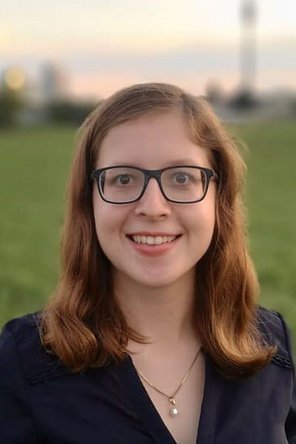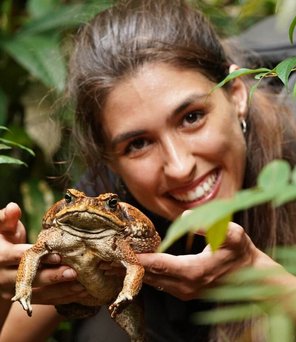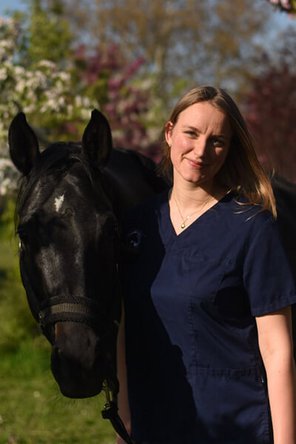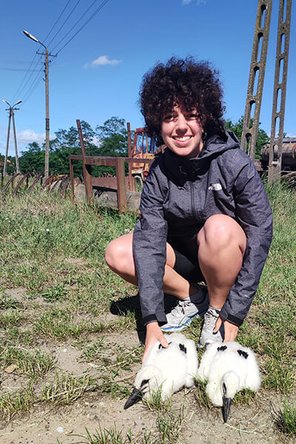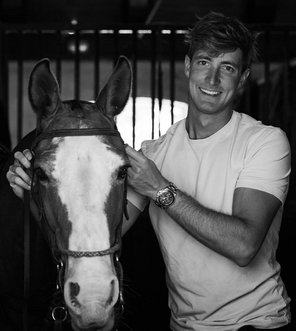- PhD One Health /
- Associated Projects & Students
Topic: Characterizing a Novel Toxin-Antitoxin System in Emetic Bacillus cereus
Self: My name is Serafina Meßmer, and I hold a Bachelor’s degree in Biology with a focus on Microbiology and Genetics, as well as a Master's degree in Molecular Microbiology, Microbial Ecology, and Immunobiology, both from the University of Vienna. Throughout my academic journey, I have developed a deep passion for understanding the complex relationships between microbial pathogens, host organisms, and their environments.
Project: The main aim of my PhD project is to characterize a newly identified toxin-antitoxin (TA) system in Bacillus cereus, a foodborne pathogen. Despite significant progress in the field, much remains unknown about the regulatory mechanisms governing toxin production and lifestyle adaptation in B. cereus. My research focuses on understanding the functional dynamics of this novel TA system and its role in bacterial stress adaptation, toxin regulation, and pathogenicity.
Supervisors:
- Univ. Prof. Dr. Monika Ehling-Schulz, Department of Biological Sciences and Pathobiology, Centre of Pathobiology
- Dr. rer. nat. Ivana Bilic, Department for Farm Animals and Veterinary Public Health
Topic: Impacts of human-induced habitat disturbances on the dyeing poison frog Dendrobates tinctorius
Self: I am a PhD student in the ROJAS lab, with a strong interest in animal ecology, behaviour, and amphibian conservation.
Project: Currently, I am investigating the impact of different global change factors, including habitat disturbance, mercury pollution and the fungal-caused infectious disease chytridiomycosis, on the poison frog Dendrobates tinctorius. To do so, I am studying the three-way interaction between the “protective” microbiome of the frog’s skin, the fungal disease, and anthropogenic stressors.
Supervisors:
This project is part of the work developed in the ROJAS lab, located in the Konrad Lorenz Institute of Ethology, and led by Asst. Prof. of Global Change Biology Bibiana Rojas, and supported by Priv.-Dozin Drin med.vet. Pamela Burger from the Research Institute of Wildlife Ecology.
Topic: Towards reduction of antibiotic use in dog breeding: Investigation of dogs’ urogenital microbiota and influence of antibiotics on the vaginal microbiome
Self: I am a veterinarian, resident and doctoral student at the Clinical Center for Reproduction of the Vetmeduni Vienna with a focus on horses as well as small animals.
Project: With this project we will have a closer look to the physiologic urogenital microbiome (Culture-dependent as well as Culture-independent investigation) of male and female dogs and the effect of antimicrobial use (AMU) on fertility in female dogs breeding preparation. The aim is to analyze, scrutinize and reduce AMU in breeding preparation and, in this context, to prevent antimicrobial resistance (AMR) and its spread.
Supervisors:
The project is a cooperation between Ao.Univ.-Prof. Dr.med.vet. Christine Aurich, Dipl.ECAR and Dr. med. vet. Svenja Claassen (Clinical Center for Reproduction), Dipl.-Biol. Sebastian Vetter-Lang, PhD (Centre for Food Science and Veterinary Public Health) and Priv.-Doz. Dr.med.vet. Dipl.ECVM Joachim Spergser (Institute of Microbiology) of the University of Veterinary Medicine Vienna. It is funded by Networking Seed Grant in relation to the UN Sustainable Development Goal 3 - Good Health and Well-Being.
Topic: Influence of anthropogenic food waste on wildlife behaviour and physiology
Self: I am a PhD student at the Research Institute of Wildlife Ecology, with a strong interest in conservation biology, ecology, and animal physiology. My educational background involves a Bachelor´s Degree in Natural Science and a Master´s degree in Biodiversity and Natural Systems.
Project: I am broadly investigating the relationships between anthropogenic activities and wildlife. The main goal of my PhD project is to study the impact of wildlife foraging on human-derived food wastes on developmental growth, health, and survival, and to identify the physiological and metabolic mechanisms influencing these effects. I am using the White Stork (Ciconia ciconia), a migratory bird, as my model system.
Supervisors: My PhD project is funded by the Austrian Science Fund (FWF Grant N: I6634-B – “Landfill foraging in migratory birds: pain or gain?”) under the main supervision of Asst Prof of Wildlife Physiology Valeria Marasco (Research Institute of Wildlife Ecology), in collaboration with Dr Marcin Tobolka (Department of Zoology, Poznan University of Life Science) and Dr Andrea Flack (Max-Planck Institute of Animal Behavior, in Konstanz, Germany).
Topic: Host-Pathogen Interactions of Chlamydia trachomatis (Ct) in Porcine Oviduct Epithelial Cells (POECs)
Self: I am a veterinarian with a Master’s degree in Immunology and Inflammation from the University of Copenhagen. During my studies, I’ve developed a strong interest in understanding the pathogenesis of various infectious diseases at a molecular level. Currently, I’m a PhD student in Tobias Käser’s research group at Vetmeduni, focusing on host-pathogen interactions in bacterial infections.
Project: Chlamydia trachomatis (Ct) is the leading cause of bacterial sexually transmitted infections globally, having a major public health concern. My PhD project aims to establish a 3D trans-well cell culture model that mimics the in vivo conditions of the porcine oviduct epithelium to study host-pathogen interactions of Ct. A key focus of my research is to investigate how this obligate intracellular pathogen affects epithelial permeability. An increase in permeability of the infected epithelium could potentially facilitate secondary infections, such as viral transmission (e.g., HIV). Overall, my research may contribute to the development of new strategies for both prevention and treatment.
Supervisors: My PhD project is under the main supervision of Ass.-Prof. Tobias Käser, PhD (Department of Biological Sciences and Pathobiology, Vetmeduni), in collaboration with Univ.-Prof. Doris Wilflingseder (Ignaz Semmelweis Institute & Vetmeduni Vienna, Infectiology & Virology Unit)
